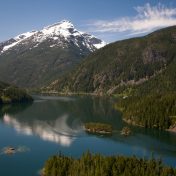Food impacts not just our waistlines but also the environment in many startling ways- such as agriculture’s use of fossil fuels and its overall impact on climate change. In a separate UW course, State-Society Relations in Third World Countries, that has turned out to be surprisingly similar to this one, we’ve learned about petroleum extraction’s devastating effects on building up… Read more »
“North Cascades.” Pacific Northwest National Scenic Trail, USDA Forest Service. Looking back on the lesson 7 contemplative practice on climate complexity I was at first kind of glad to be living in the Pacific NorthWest. As we saw in one of the slides the pacific north west will have increased agriculture production because of climate change. However, I quickly realized… Read more »
Kimmey, Katelin. Seed of a Soul. 2013. Photograph. Flickr.com8.15.2017 Seeds are resilient, when talking about gardening my brother once said, ‘I always just plant seeds and somehow almost every seed comes up and it amazes me every time’. Every year when little plants start to push their way through the dirt I remember his words. However, a seed can do… Read more »
The final week of the class has addressed the topic of many things that I would have considered to be, “hippie stuff.” Before moving to Washington State back in ’09, I grew up in a poor white family living on government assistance, food was whatever came to the table, whatever the most that could be had with food stamps was…. Read more »
My research paper has gained me alight of insight into the world of antibiotic use in meat, particular the negative effects it is having on antibiotic usefulness. The practice of using antibiotics as growth hormones causing bacteria to become resistant to the to level of antibiotics we ingest through eating meat, and when we become sick, the antibiotics are not… Read more »
After reading about the many land deals that have occurred recently, I began to notice that the overriding theme seemed to be that these “land grabs” were detrimental. Which may be the case, however, these countries who are acquiring land may have motives less devious than originally expected. City, state and federal leader’s jobs are to act in the best… Read more »
To function effectively, landscape governance ought to consider the whole system, which would account for the ecological impact and food sustenance needs. There is much profit to be found in land. Cash crops offer huge profits that are motivating a change in land investment and moving large corporations into the field where small farmers once predominated. The farms then tend… Read more »
In the West, where fresh water is taken for granted, we are beginning to see the possibility of our water reservoirs depleting. Some states in the USA are already noticing consequences of misusing freshwater, such as California, which hasn’t seen a regular rain for the last four consecutive years (Egan). Many California residents have taken measures to reduce their water… Read more »
What if I told you that soil was not lifeless dirt, but home to an entire microbial ecosystem? Now, what if I told you these microbes were the key to improving soil quality and reducing the amount of carbon dioxide in the atmosphere? These are just a few of the innovations that spring from systems thinking. By thinking about soil… Read more »
The International Panel on Climate Change (IPCC) estimates that by the year 2100, approximately 56 to 75% of humanity will experience water scarcity. As Lester Brown points out in Full Planet, Empty Plates, there are no substitutes for water. No other resource, natural or manmade, can replace water as an essential component of life on earth. A future of water shortages, as… Read more »

